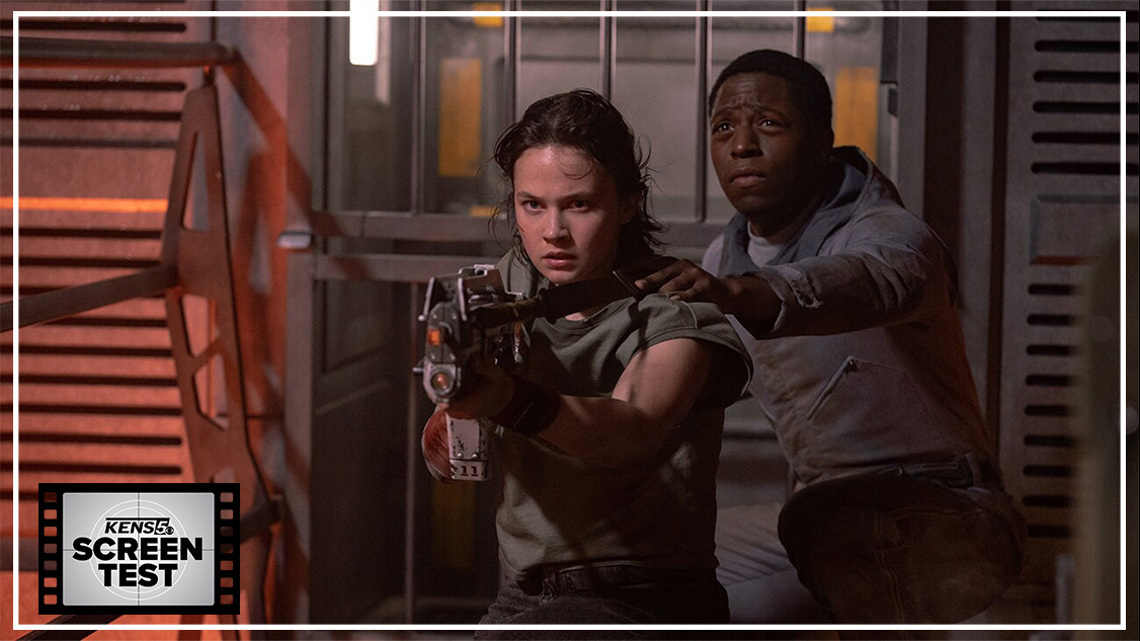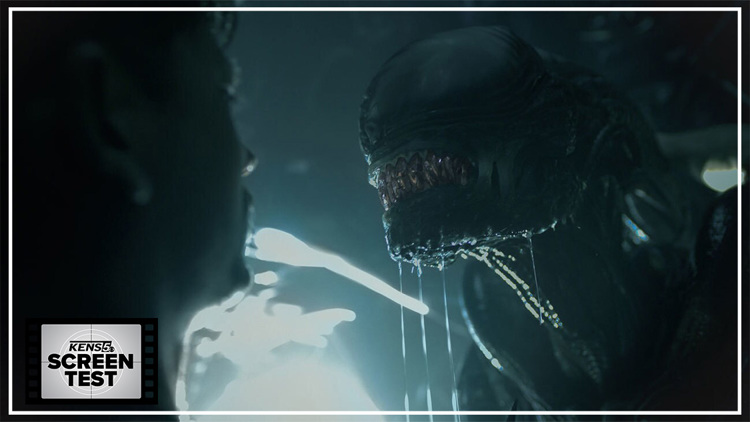USA, — The “Alien” films, seven entries deep now (or nine, if you count the schlocky “Alien vs. Predator” crossovers) amount to a franchise all franchises should aspire to be in their dexterity. Whether you prefer these movies at their militaristic, mythological or minimal, debates over which are the best reveal themselves eventually to be a Rorschach test for what scifi lovers expect out of their genre fare—and how willing they are to sink into the creative sandboxes the series operates in.
This is to say, while an “Alien” movie can be many things – a deep-space cat-and-mouse thriller or a grimy existential drama; an all-pistons-firing blockbuster or a haunting meditation on why we create and why we destroy – derivative has hardly proven to be one of them in the 45 years since Ellen Ripley first shot a snarling predator out the airlock. Yet “derivative” is the word that rises above all others when I think about director Fede Álvarez’s “Alien: Romulus,” which follows a group of human Weyland-Yutani chattel on their mission to grab resources from the remains of a derelict ship floating above their mining colony. Spoiler: It doesn't go as planned.
Our protagonist is Rain (Cailee Spaeny, a 26-year-old able to weaponize that she looks half that age), who has been roped along by the promise that she’ll be able to escape her way out of service to the greedy Weyland-Yutani corporation that‘s always been on the fringes of the “Alien” universe, pulling strings that send unfortunate souls to meet their doom while sending our popcorn flying into the air. Before a line of dialogue is spoken, you sense Rain has been anointed as the latest of Ripley’s cinematic descendants, frustrated by the system and forced to find her humanity when the facehuggers leap and Xenomorphs stalk. When she eventually picks up the iconic plasma rifle, small as she looks while wielding it, you can bet she’s firing away at Weyland-Yutani’s exploitation as much as at the slimy demons on the prowl.
Yet there isn’t very much else that’s distinctive about Rain as a character, nor her human counterparts for that matter, who left me feeling for the first time in the early scenes of an “Alien” movie like I was merely biding my time for the slithery main attraction to show itself. The thing about “Alien: Romulus” being derivative (the movie was penned by Álvarez and collaborator Rodo Sayagues) is that it appears perfectly content being derivative as Rain and company tip-toe wide-eyed through the eponymous ship, unable to imagine what’s on their heels.
But what about us? The audience has had nearly half a century with the Xenomorphs, so Álvarez has his work cut out for him to fire up our imaginations anew about how terrifying they can be. At points the “Evil Dead” and “Don’t Breathe” director understands his assignment, placing his prey into situations that show his savvy at navigating tight spaces or toying with sound—skills that made those two aforementioned movies all the more memorable in their mounting dread. But then these parameters “Alien: Romulus” has set will jump from the patience of “Alien” to the glee of “Aliens” before awkwardly referencing the 2012 prequel “Prometheus,” and we’re left distracted by the mystery of why a thriller that initially revels in being so contained suddenly finds itself straining to reach its tendrils through the various movies that came before it.
That not only turns “Alien: Romulus” into an inelegant set-piece assembly line; it gives the movie an excuse not to maximize the effect of each scene, ultimately rendering it that other thing that an “Alien” movie has never been and shouldn’t ever be: tame. You find yourself wishing the adventure was a little angrier or a little more provocative or a little more beguiling to bring it closer to the equilibrium of the series, which, even at its lowest, has often found something beautiful in its ickiest moments. The frustrating thing is the last 15 minutes get us close, when Álvarez finally and fully bares his teeth as he deploys a horrifying creation that can undoubtedly, and unlike most everything else, be called his, all the while brushing lightly against the series' warped view of motherhood.
Up until that point, the best anchor we have comes in the form of Andy, an outdated android programmed to protect Rain and played by David Jonsson, a sterling young British actor able to manifest melancholy in his eyes like Xenomorphs drip globs of saliva. Though arriving in the form of a most unholy CGI incarnation of a legacy actor, the most inviting source of tension in “Alien: Romulus” comes when Andy, upon being rebooted, begins to place corporate agendas above personal ones. You feel like something has been lost in the abyss of something overwhelmingly greater, and you want desperately for Rain to get it back. That’s what great young actors like Jonsson can still do in a halfway-effective blockbuster like this.


The mixing and matching of Romulus otherwise extends to the eponymous ship’s production design, which cribs in varying amounts from the pearl-white environments of “Alien’s” Nostromo, the Xenomorph-wallpapered walls of “Aliens,” the grimy communes of “Alien 3’s” prison planet and, oh so briefly, the paradise-tinged lakefronts of “Covenant.” To the movie’s credit, the series’ nine rings of limb-ripping hell are rendered fantastically in “Romulus,” and look even better when light splinters and spills into this cosmic haunted house. If you’re not convinced by the lack of dimension that largely defines our characters, rest assured it’ll look gorgeous when things get gory and you can certify their blood-and-bone humanity for yourself. Aside from a set piece that tries and only halfway succeeds at convincing us that dodging acidic blood could be its own Olympics event, there’s little here to make you suspect our actors are running, convulsing or screaming against a green screen.
That’s certainly for the best, not only because it’s how we should want all our franchise fare to look, but because it helps underscore the “Alien” ethos even if most everything else doesn’t. Part of the pleasure of these movies is watching as veneers of control are shattered, idyllic missions scorched through with acidic blood. Fate, once it’s entered an arena like the Nostromo or Romulus, can only be commandeered when you’re looking above, behind and below you as well as straight ahead. The future might suggest safety, but through the enduring corporate antagonist that is Weyland-Yutani these movies suggest that human progress won't ever advance us past our worst impulses.
In “Romulus,” though, the trajectory of tension falls slack because we aren’t convinced these humans had much control to begin with. We’re unable to fully process the possibility that’s been ripped to shreds when a chest is inevitably burst through by a screeching alien, setting the “Alien” of it all into motion.
Come to think of it, that scene, too – with all the perversely iconic elements that come with the chestburster – is unjustifiably muted in its terror.
"Alien: Romulus" is now in theaters. Rated R for bloody violent content and language. Runtime: 1 hour, 59 minutes.
Starring Cailee Spaeny, David Jonsson, Archie Renaux, Isabela Merced
Directed by Fede Álvarez, written by Álvarez and Rodo Sayagues
2024
>MORE REVIEWS:



